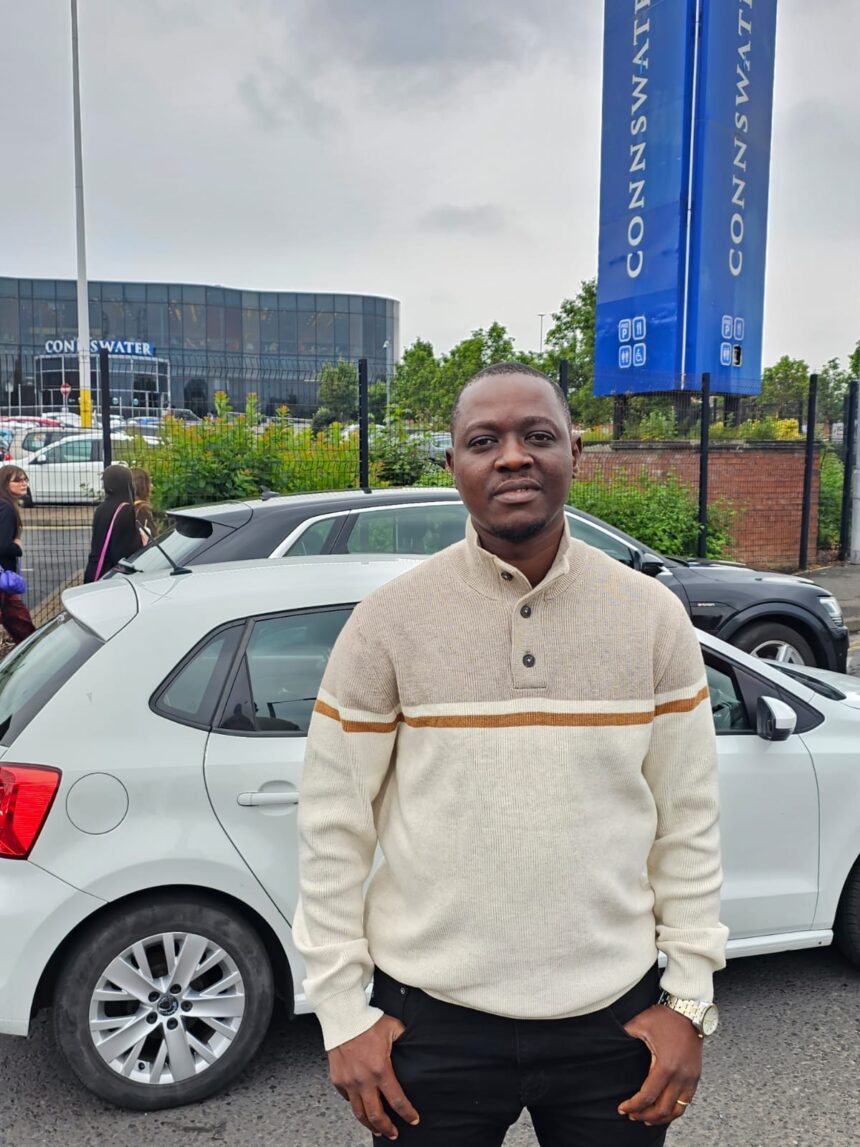This is a spotlight on one of the best creative minds in Nigeria- Ola Awakan. He stands as a prominent figure in the realms of performance theatre, scriptwriting, and broadcast journalism. He is known for his versatile talents and contributions to multiple facets of the creative industry.
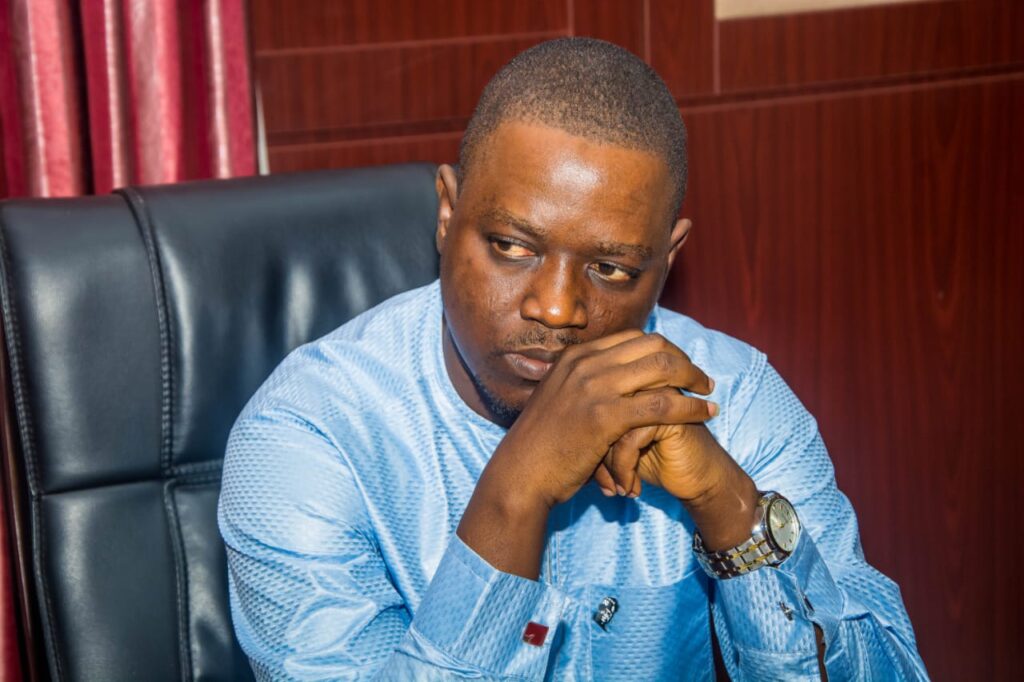
As a playwright, Ola Awakan’s creative ingenuity shines through his thought-provoking and emotionally-resonating scripts. His written works delve into a spectrum of human experiences, exploring themes that range from societal issues to personal narratives.
His plays reflect a keen understanding of storytelling, often leaving a lasting impression on audiences and provoking introspection.
In an exclusive interview regarding his new play, “Madness That Cures My Land,” which is scheduled to be performed this weekend on the 3rd of December at Freedom Park Lagos by Just Theatre Lagos, Ola had this to say:
Can you tell us a little bit about your play and what inspired you to write it?
Over the years, I have realised that individuals’ perceptions of things differ. What a man can accept, another may not but does that make the other a bad person? What we do as an individual has a multiplier effect on the larger society. When an individual sits to judge a fellow human being, the manner of judging others may even be a problem to some others.
Before judging others, have you checked yourself thoroughly to see that you are purely sane? We live in a society where almost everyone is provoked to display a few seconds of madness. And that display of insanity may also lead to another problem which breeds another and another, this may continue forever, if one does not consciously break the chain.
My attempt with this play, ‘The Madness that Cures My Land’ touches in a subtle manner the distinctive difference in the belief system of Nigerians, taking a journey to the conflict of faith and tradition; tradition and civilisation and others.
How long did it take you to write this play, and what was your creative process like?
Firstly, playwriting is a duty of research. The idea has actually been there for over five years but I never started putting pen to paper until July this year and I concluded it in August. The process of intra-personal communication, which is the ideation stage actually took a longer time. What I just did when I wanted to start writing was to build the plot, the setting, characterization and to bring topical situations to bear.
What themes or messages do you hope to convey through this play?
Filled with humour, the play delves into the themes of survival, family system, community nuances, leadership inconsistencies, social justice and mental health awareness. Also, the friction between tradition and western culture; tradition and religious beliefs. The multiplier impact of evil in a society struggling to stand on it’s feet is also beamed. In the play, there is a deliberate effort to advocate justice over injustice, better interactionism among inhabitants of a particular society, leadership uprightness, cultural sensitivity and social justice.
Can you share any challenges you faced during the writing process and how you overcame them?
One major challenge was time. Being a busy journalist who was actively involved in the political campaigns of the now Mr President, who was a Candidate around the peak of the ideation stage, I never had the luxury of time that I needed but as a man who is driven by passion, I had to create time out of no time to make the literature available. I also involved some family and friends in the first reading, and that has helped to make it into what is now a proper production on stage.
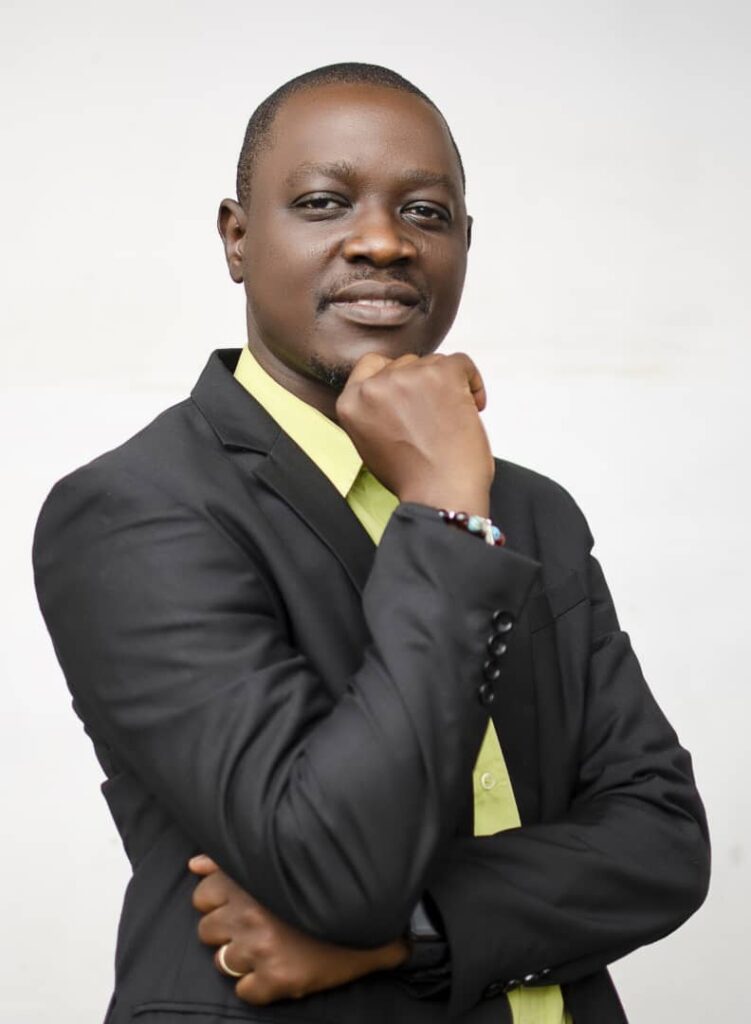
How involved have you been in the production process, and what has that experience been like for you?
The nature of the premiere of the play is like the first if it’s kind. The play is being interpreted by two theatre companies in Lagos and Abuja in the same week. This allows for different interpretations from two prolific directors. Given the fact that I am in Abuja, I am more physically involved in the process than in Lagos. But I still have confidence in the team in Lagos. One thing I never neglected was the opportunity to discuss extensively the concept of the play plots and the characters with the two Directors. But I allowed them the flexibility needed and I promise the audience both in Lagos and Abuja of the best of live theatre through the production of The Madness that Cures my Land. It’s full of humour, realism and the caricature of some key characters in the development of any society.
Are there any specific moments or scenes in the play that you are particularly excited for the audience to see?
(laughs) well, the play has a plot and all the scenes are interconnected but when you find a Professor and a Mad Woman entangled in the web of controversy, the cacophony is best imagined. Also, when you see a visible conflict of belief between a traditional Baba Ijebu and an orthodox Rev Paul as well as a bookwarm Professor who does not believe that charm has any potency rather considered as a mere theatre props, the result is best imagined. I think you have to just see the play and pick your best out of the scenes. As for me, all the scenes as engaging!
What do you think makes this play unique or different from others in the same genre?
The play, which is ideological has a cultural impact. It brings to bear some activities of men that we overlook. It captures a unique consideration of human existence. After watching the play, you likely ask yourself if you have ever displayed any form of ‘madness’ in the past either by your actions, inactions or interactions.
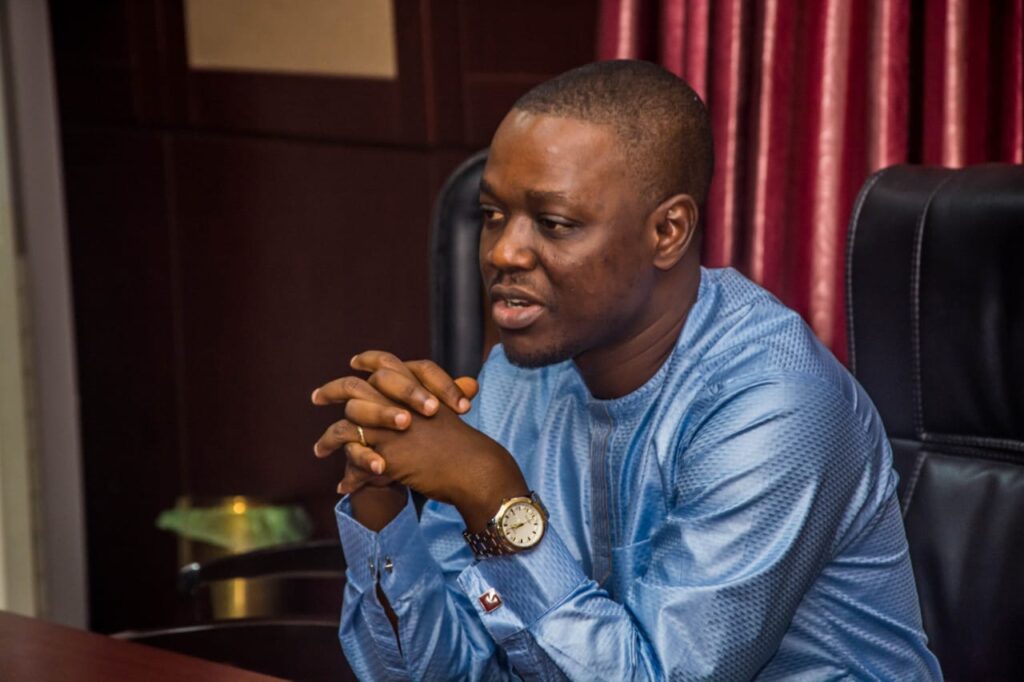
How do you envision the audience reacting to your play, and what impact do you hope it will have on them?
It will elicit a reflective mood in the audience. After laughing out loud, you will at the end of the play ask yourself if truly everyone is mad or if truly no one is mad. It will arouse a continues deliberation among the audience about their existence and interactionism in the larger society. A reflection of what their actions in the past may have led to, will fume their minds. The play will leave the audience pondering on many aspects of existence.
Are there any specific actors or actresses you had in mind while writing the characters, and how do you feel about the casting choices made for the production?
Like I said, I have two different members of cast for this production in Lagos and Abuja and they are all unique in their interpretations. I believe any good stage actor can interpret any role given. I do not believe in stereotyping actors. For me, all actors who have stage orientation are good. For the actors in Lagos and Abuja, I am pleased with them. Nevertheless, I want to see some notable Nollywood actors like Odunlade Adekola taking Baba Ijebu, Lateef Adedimeji taking Benson, Tolulope Asanu on the Zafeera role… But for my directors on both sides, they have done well with their casting.
Lastly, what advice would you give to aspiring playwrights who are looking to have their work staged?
They should get mentorship from established playwrights. They should be consistent with good and well researched scripts. The joy of every playwright is to see their plays on stage, and this is possible if they are with the right network of people in the industry. They must not start big. They should not put money first but ensure that creativity is topnotch in their writing adventure. They can always get any small theatre groups to stage their plays or always look for opportunities for playreading- it helps to make a play better before production. My last advise it, they should not give up. The ink must not dry up.
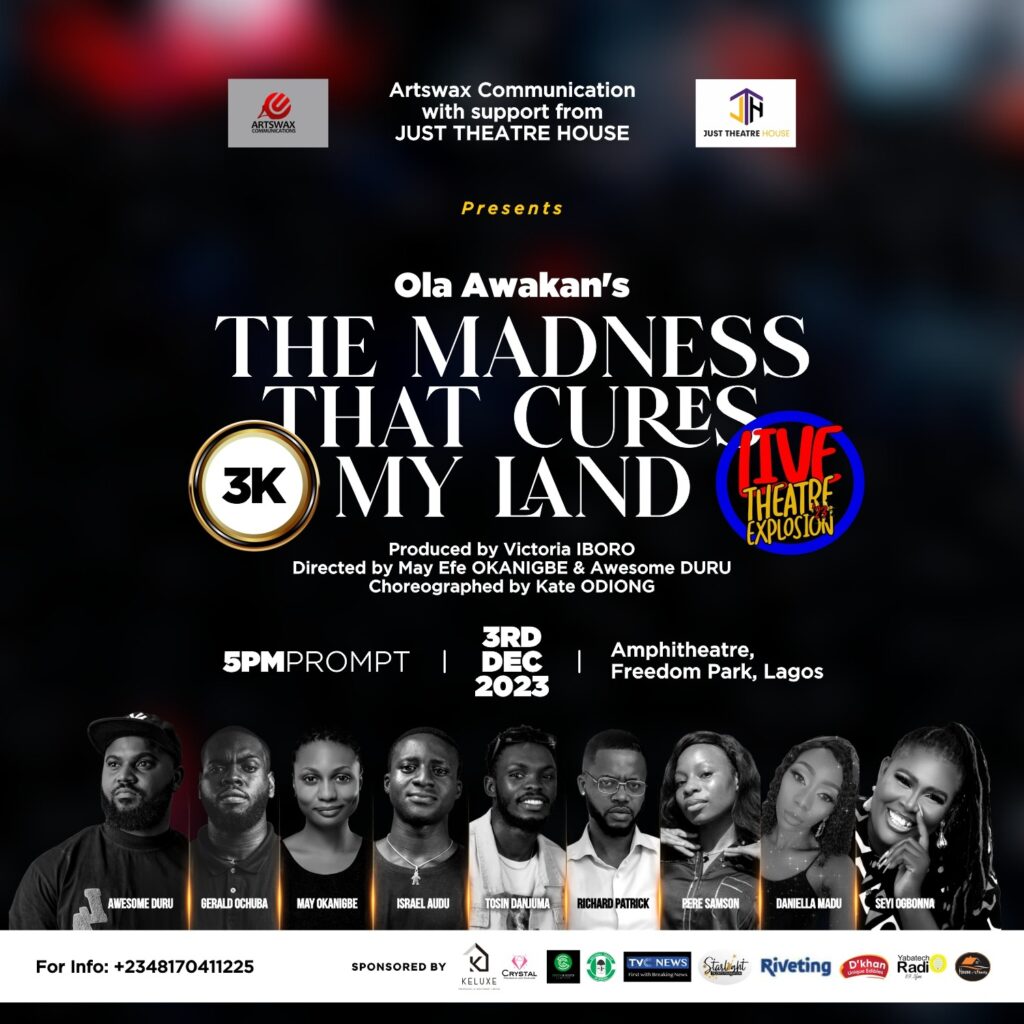
The Madness That Cures My Land will be showing in Lagos this weekend 3rd of December at Amphitheater, Freedom Park, Lagos.
Credit: Adesina Kasali


